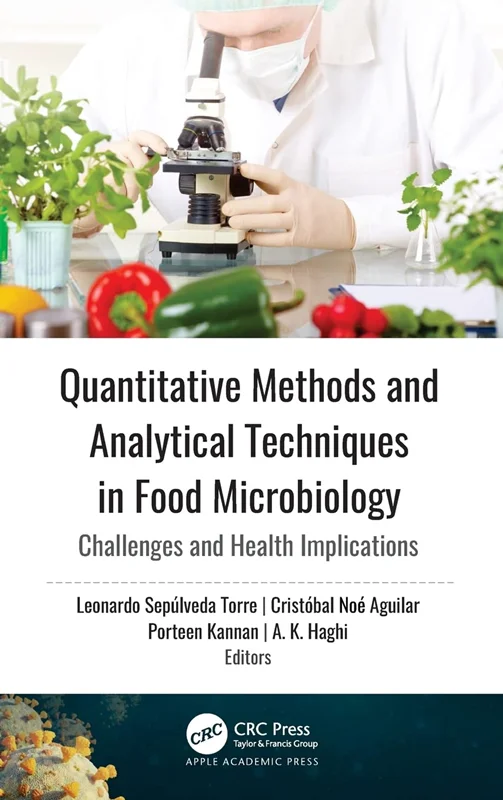Quantitative Methods and Analytical Techniques in Food Microbiology: Challenges and Health Implications
Leonardo Sepúlveda Torre, Cristóbal Noé Aguilar, Porteen Kannan, A. K. Haghi, B09WTPBR9N, 177463726X, 9781774637265, 9781003277453, 9781774637425, 978-1774637265, 978-1003277453, 978-1774637425, 978-1-77463-726-5, 978-1-77463-742-5, 978-1-00327-745-3
This volume provides up-to-date and detailed scientific information on recent developments and new approaches in food microbiology, focusing on microbial food pathogens. The volume presents the fundamental aspects of food and microorganisms, and also addresses food systems and measures to prevent and control food, foodborne diseases, etc.
According to the editors, every minute, there are about 50,000 cases of gastrointestinal diseases from food-mediated infections and food poisoning, and many individuals, especially children, die from these infections. The most important preventive measures are for the development and continuous implementation of effective interventions to improve overall food safety. The book helps to meet the challenge of food safety issues by focusing on the fundamental aspects of food and microorganisms. Each section consists of detailed information on the particular aspects of each topic, including basic microbiology, safety, pathogenic microorganisms, food conservation, sanitization, and hygiene procedures. The microbial diversity found in food is described from the classification by kingdoms and the main groups of microorganisms present in them. Although the main issue is microbial food pathogens, the book also covers another important aspect of food microbiology: food systems and measurements to prevent and control food, foodborne diseases, etc.
Quantitative Methods Quantitative Methods and Analytical Techniques in Food Microbiology: Challenges and Health Implications will be a valuable resource for scientists, researchers, faculty, students, and others in various sectors in food science and technology. The scope of food microbiology is highly inclusive, as it interacts with all subdisciplines of microbiology, such as public health microbiology, microbial genetics, fermentation technologies, microbial physiology and biochemistry, and food microbiologists have been at the forefront of many microbiological concepts and advances.

